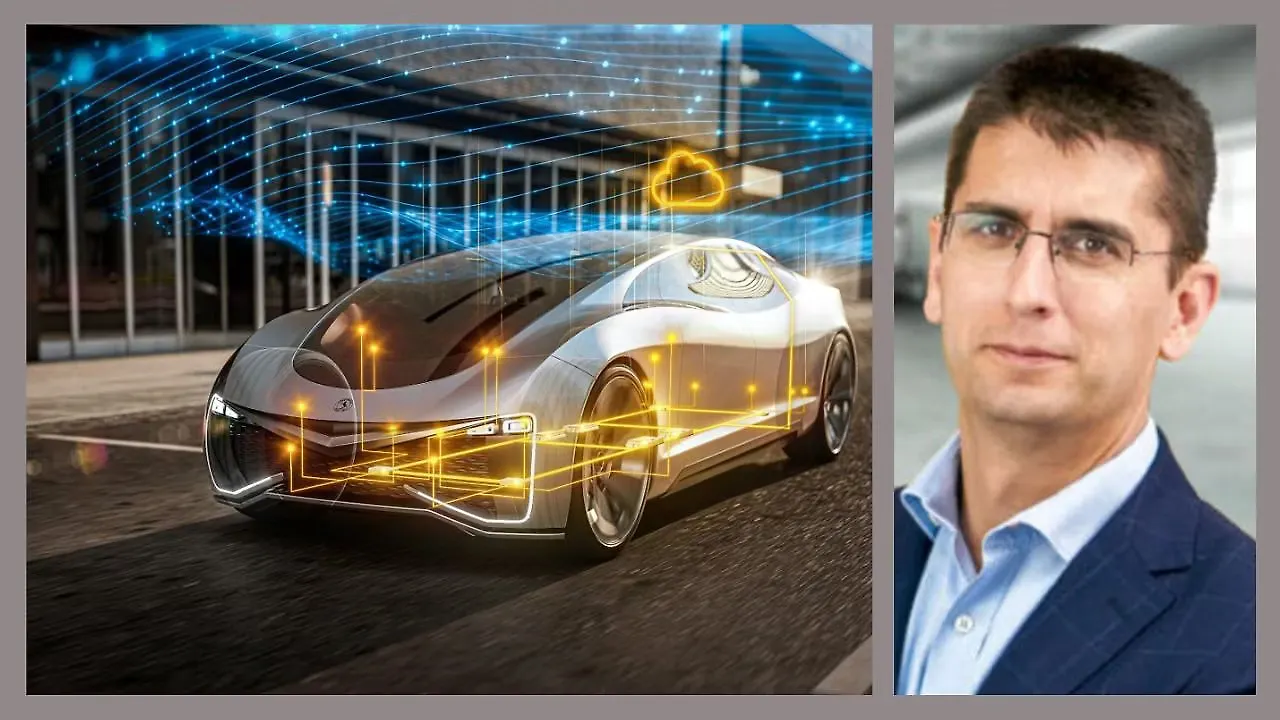
The automotive industry is undergoing a rapid transformation, shifting from its traditional, hardware-centric roots to a more dynamic, software-driven paradigm that prioritises continuous improvement and adaptability. At the forefront of this evolution is the concept of the Software-Defined Vehicle (SDV), a pivotal innovation that is shaping the future of mobility, particularly in the realms of connected, autonomous, and electric vehicles.
Gilles Mabire, Chief Technology Officer at Continental AG, asserts that SDVs represent a clear game changer in the industry, driven by two key factors. First, from the end-user perspective, there is a growing expectation for vehicles to function like open systems, where regular updates and upgrades are the norm, with software playing a crucial role. Second, the market demand from automakers necessitates new vehicle architectures that offer the flexibility to manage both hardware and software throughout the vehicle's lifecycle.
It is, therefore, crucial to design and develop hardware that is not only more powerful but also capable of withstanding extended production cycles. In contrast, the software lifecycle will be considerably more dynamic and fluid, necessitating regular updates to enhance functionality, address cybersecurity threats, and manage middleware updates, among other needs.

'We are transitioning from a traditional manufacturing focus to becoming a technology-driven company,' he noted. 'With nearly 30,000 engineers and a vast array of software and system capabilities, we've already begun this transformation. This shift requires us to continuously reassess and refine our portfolio. Components that are relevant today may become obsolete tomorrow, replaced by more advanced hardware systems or even software functions. However, it also provides us with an opportunity, making it important for us to invest in and prioritise this new technology,” he said.
Mabire, who also serves as the Head of Software and Central Technology at Continental, emphasised the increasing complexity of high-performance computers (HPCs) and zone controller units, particularly due to their reliance on sophisticated middleware. Continental is poised to deliver comprehensive, scalable solutions to its customers, with a focus on enhancing safety, offering advanced driver assistance systems (ADAS), and improving user experience (UX). 'These solutions can eventually be offered as modular elements to our customers, presenting even more opportunities,' Mabire noted. 'It's essential that we navigate this evolving landscape strategically, finding our place in this new game. The challenges are significant, but so are the opportunities,' he added.
In-Vehicle Zero Trust Architecture
Software-Defined Vehicles (SDVs) are at various stages of development, with significant focus on the concept of 'in-vehicle zero trust architecture.' As SDVs continue to evolve, they promise to deliver robust cybersecurity defenses. Discussing the challenges and corresponding solutions, Mabire emphasized that SDV development represents not just an architectural and technical transformation, but a fundamental shift in the company’s development philosophy, particularly through the use of virtualization and digital twins.
Having led the Infotainment & Connectivity Business Unit in France for over six years, where he was responsible for all European Original Equipment Manufacturers, Mabire has established himself as a leading authority on SDVs. He explained that the company’s goal is to separate elements that were previously intertwined. 'On one hand, we aim to mature the architecture in a virtual environment. This approach allows us to ensure the functionality and performance of the system before it ever reaches the physical stage, ultimately helping us to reduce costs,' he said.
Furthermore, the company is working towards progressively integrating hardware into the loop of its solutions. This strategy means that fixing bugs in the future will be far less costly than in the past, significantly driving down expenses. Virtualization is also being leveraged for product validation, further streamlining the development process and enhancing efficiency.
Continuous Compliance
Another crucial element in modern automotive development is 'continuous compliance,' which enables companies to automate compliance checks and audits. By integrating these tools into software development pipelines, it becomes possible to detect and address various issues, including cybersecurity concerns, early in the process. Speaking from Continental’s perspective, Mabire highlighted that the company has been investing in the CAEdge framework for nearly three years. The Continental Edge framework integrates tools for configuration, software development, testing, integration, and deployment.
'This framework acts as a cohesive chain that accelerates and enhances software development, with the goal of automating as much of the process as possible. It not only improves our processes, methods, and development capabilities but also ensures that we remain at the forefront of technological advancements,' Mabire explained.
The CAEdge framework also fosters better collaboration with customers, aiding in their transformation efforts by enabling virtualisation and speeding up the development process. 'You can begin by defending your architecture at an early stage, and there are numerous examples where this approach has proven successful,' Mabire noted.

To support this initiative, Continental has partnered with AWS for infrastructure, alongside a network of other collaborators. 'This isn’t an exclusive effort by Continental but a collaborative, open activity. I strongly believe that this partnership approach is essential to navigating the complexities and challenges we face,' he mentioned.
Automotive-grade Linux
Automotive Grade Linux (AGL) has now entered a phase of mass adoption, evolving from its initial use in building infotainment systems to becoming a standard in production vehicles for several major automotive manufacturers. Reflecting on Continental’s journey with AGL, Mabire shared, “Having spent about 14 years in the infotainment domain, I am proud to have been part of launching one of the first infotainment solutions that established Linux as the standard for such systems. Its success lies in the robust support from a vast community of developers who continuously advance this technology.”
Mabire went on to highlight Continental's latest advancements with Elektrobit, stating, “We have now reached a new milestone with the development of Safe Linux, a Linux-based safety framework designed to host and operate critical safety functions. This represents the next phase in the evolution of Linux and Linux-based applications within the automotive industry. We see this technology as a viable alternative to some of the more costly solutions available. As we prepare to launch Safe Linux, we have already received positive feedback from the market and our customers, indicating significant potential for further growth in this domain,” Mabire signed off.
Also Read:
Modern Cars Resemble Moving Data Centres: Continental’s CTO - Gilles Mabire